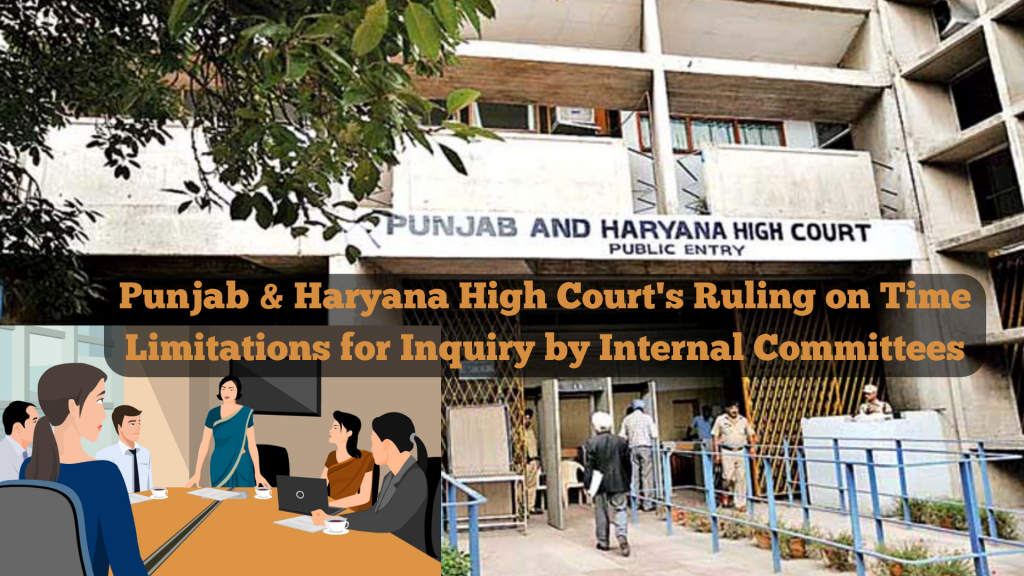
Punjab & Haryana High Court’s Ruling on Time Limitations for Inquiry by Internal Committees
Judgement Given On : 22/03/2021
In the case of Vivek Tyagi vs. State of Haryana and Ors., the Punjab & Haryana High Court issued a significant judgment on March 22, 2021, that addresses the crucial issue of time limitations in conducting inquiries through Internal Committees or Local Committees under the Prevention of Sexual Harassment (POSH) Law.
The Respondent (“Aggrieved”) lodged a complaint with the Local Committee (“LC”) on September 18, 2019, alleging sexual harassment by certain officers within her company. According to the complaint, the last instance of sexual harassment occurred on November 3, 2018. However, the Aggrieved had resigned from her job on January 16, 2019. Subsequently, her full and final settlement was executed on June 11, 2019, with formal communication sent to her on June 12, 2019. The latter date was taken as the point of reference for the last incident, and the complaint was filed accordingly.
The POSH Law provides a three-month window for an aggrieved woman to file a complaint, commencing from the date of the incident. In cases involving a series of incidents, the complaint can be filed within three months from the date of the last incident. The law also empowers the Internal Complaints Committee or the Local Committee to extend the time limit for an additional period, not exceeding three months, following the initial three-month period. The maximum period for initiating a complaint under the Act is six months from the date of the incident or, in the case of a series of incidents, from the date of the last incident. Beyond this time frame, the Internal Committee or the Local Committee is legally precluded from entertaining the complaint under the Act.
The Company asserted that the complaint had been filed beyond the stipulated limitation period, rendering it impermissible for the LC to entertain it. The Respondent countered by arguing that she had experienced undue pressure even subsequent to her resignation, leading the complaint to fall within the prescribed limitation period.
Court’s Observations
The court meticulously scrutinized the chronology of events:
- It observed that the last incident, as per the complaint, transpired on November 3, 2018, while the Aggrieved continued her employment until January 16, 2019, without taking any initiative to file a complaint during this period.
- Even upon her resignation on January 16, 2019, the Aggrieved refrained from submitting a complaint to the committee.
- The communication dated June 12, 2019, was found to pertain solely to the full and final settlement and was not indicative of any act of sexual harassment. Consequently, the court determined that this communication did not constitute a fresh cause of action warranting an extension of the limitation period for initiating a sexual harassment complaint.
Court’s Decision
In light of its findings, the court decreed that the communication dated June 12, 2019, did not fall within the purview of sexual harassment. Consequently, it concluded that the complaint was barred by limitation, and the court refrained from delving into other facets of the case. The judgment delivered by the Punjab & Haryana High Court serves to underscore the utmost importance of adhering to statutory limitations when initiating sexual harassment complaints.
The ruling not only offers clarity regarding the temporal constraints governing inquiries conducted by Internal Committees or Local Committees under the POSH Law but also emphasizes that mere communications unrelated to sexual harassment do not constitute grounds for extending the limitation period for the filing of a complaint.
